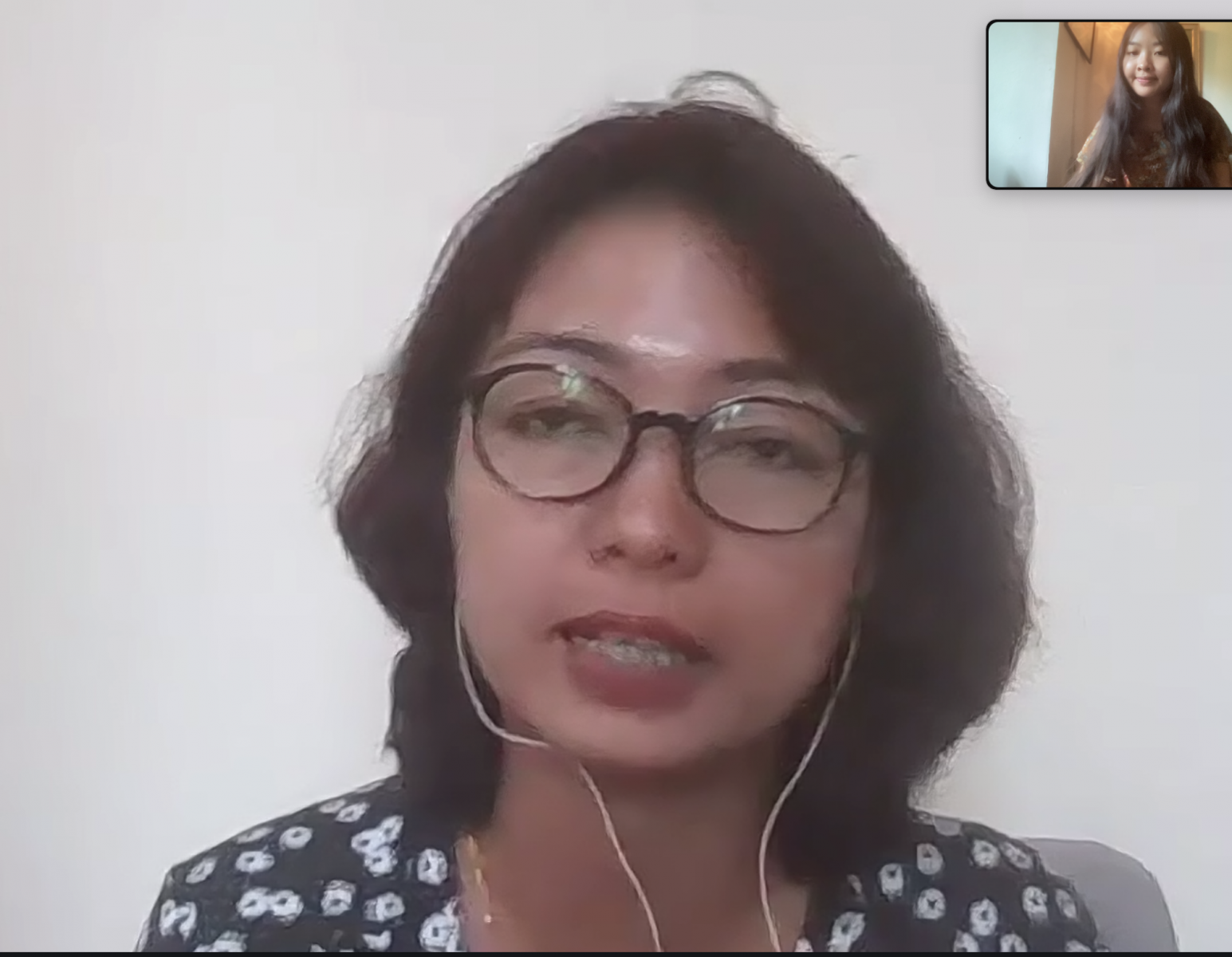Starting Point
Ms. Thinzar Aung works at the Centre for Peace and Reconciliation (CPR), Myanmar. As a citizen, she understands the importance of peace and how it is a fundamental necessity for the country. This drives her to contribute and get involved in peace processes by collaborating with organisations engaged in these efforts. Thus, she worked at the Myanmar Peace Centre and later joined the Centre for Peace and Reconciliation Group (CPR) as a Programme Manager. Her responsibilities included serving as a facilitator, handling media relations, and preparing research papers.
In 2013, she attended a disarmament, demobilisation and reintegration-security sector reform (DDR-SSR) training in Barcelona. She also participated in domestic training sessions conducted by Myanmar Egress.
Given the current state of affairs, where peace seems increasingly challenging to achieve, it motivates her to strive harder. She wants to expand her role from a facilitator to a negotiator. In finding a figure that inspires her work, she looks to Daw Aung San Suu Kyi, who has never supported violent approaches.
Peace Journey
She detailed her experience with the peace process in Myanmar, recalling that under President U Thein Sein’s administration, peace negotiations were held. On October 15, 2015, the Nationwide Ceasefire Agreement (NCA) was signed, marking the first peace conference. The groups in conflict that signed the agreement had been negotiating until October 2023. But after Operation 1027, all activities ceased. Despite various efforts by the state using different methods, the military actions have escalated, leading to the suspension of the NCA.
According to the State Administration Council (SAC) government's five-point plan, if a new election is held and the proportional representation (PR) system is adopted, a civilian government that includes ethnic groups and various parties could emerge. This would help achieve ethnic rights and equality, moving towards a federal democratic system, beyond the 2008 constitution.
Under the NLD, the peace conferences continued under "21st Century Panglong (peace conference)," with four meetings held, unfortunately, there has been no success. The ongoing peace efforts have stalled due to conflicts that began in 2021, and have become a process that needs to be restarted from the beginning. Before 2021, peace negotiations and conferences were held. She does not think that the programmes for women, peace, security, and development are included under peace processes within the country.
Reflecting on the path Myanmar had taken, in her opinion, the peace process should be carried out by strengthening the central government's control over opposing groups. The central government should also make efforts to renew invitations for peace negotiations.
Success Stories
One of the highlights of her career is the publication of her research papers related to women’s participation in peace processes. She found that, as the conflict intensifies, women’s participation as facilitators in informal meetings can help reduce tensions. Creating a safe and supportive environment for women is essential. This can help women participate more in peace processes.
During her research, she also learned that discussions can become unproductive without prior preparation and negotiation. Thus, planning and preparatory discussions are crucial. However, in her study, women often express heightened concerns about their security when participating in interviews. Additionally, she participated in drafting the outputs of coordination meetings that were later implemented as policies.

